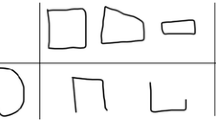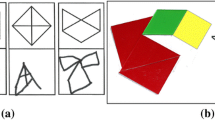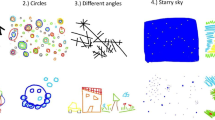Abstract
This study focuses on the process by which children develop a formal mathematical concept of the circle by using various instruments to draw circles within the context of a goal-directed drawing task. Particular attention was given to the transition from using tracers and templates to using a compass for drawing circles and to the extent to which the use of different drawing instruments may contribute to the formation of a formally defined mathematical concept of the circle. The critical difference considered in the study is that the compass, in contrast to circle-drawing tracers or templates, induces by its physical structure and its functional use the generative features of formal mathematical concepts of the circle, that is, the centre and the radius. Analysis of the empirical data indicates that the use of the compass in circle drawing structures the circle-drawing operation in a radically different fashion than circle tracers and templates, and brings into play an action-bound practical thinking. Such thinking has an overall positive influence on the construction of analytical concepts by children that are analogous to the formally defined mathematical concepts of the circle.
Similar content being viewed by others
Author information
Authors and Affiliations
Rights and permissions
About this article
Cite this article
Chassapis, D. The mediation of tools in the development of formal mathematical concepts: The compass and the circle as an example. Educational Studies in Mathematics 37, 275–293 (1998). https://doi.org/10.1023/A:1003696507155
Issue Date:
DOI: https://doi.org/10.1023/A:1003696507155




